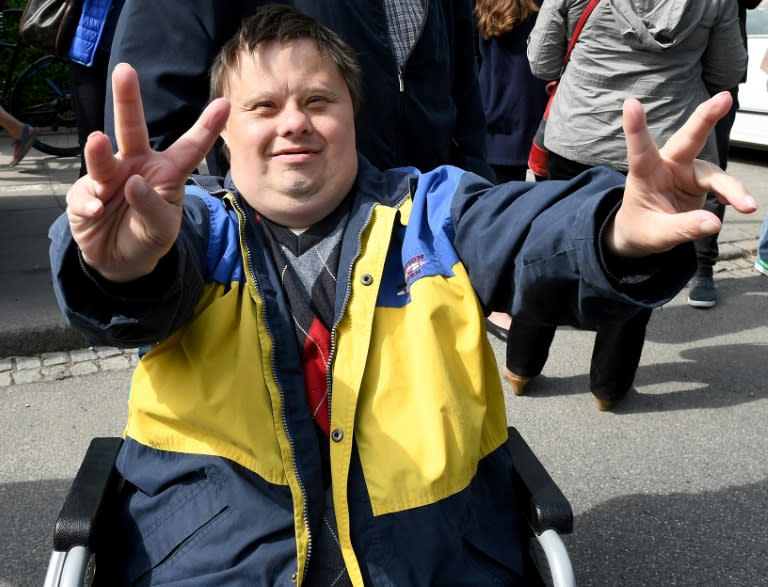Disabled protesters call off sit-in in Polish parliament
Young disabled Poles on Sunday called off their sit-in protest in the Polish parliament after 40 days of sleeping on its floor in a bid to persuade the rightwing government to boost their meagre living allowance. The move came as the spring session of NATO's Parliamentary Assembly was being held in the Polish parliament over the weekend. In connection with the event, Polish authorities blocked off the corridor where the protesters were camped out, leaving them access to only one bathroom and cutting them off from shower facilities and the outside world. "After 40 days of continuous humiliation and contempt from the current government, we are suspending our protest in parliament," Iwona Hartwich, who had been protesting alongside her 23-year-old son Jakub, told reporters gathered outside the parliament building in Warsaw on Sunday. "We're worried about our children's wellbeing. We've been cut off from facilities," she said. Confined to a wheelchair, Jakub is one of some 10 disabled young protesters demanding a new monthly benefit of 120 euros ($141) in addition to the modest state payments of around 210 euros they currently receive. "We'll never understand why people with disabilities are being condemned to live in poverty," Hartwig added. Poland's conservative President Andrzej Duda told the Polish PAP news agency that more work was needed to find "solutions that will serve disabled people". Lech Walesa, Poland's communist-era freedom icon and Nobel Peace Prize winner, rallied behind the protesters on Monday calling for solidarity with their cause. Senior members of the rightwing Law and Justice (PiS) government have also met with them, but have failed to agree on all their demands. Poland's Family and Labour Minister Elzbieta Rafalska said the government has agreed to increase the existing disability allowance to 245 euros. Rafalska also told the Gosc Niedzielny weekly that the government had tabled legislation boosting funding for costly physiotherapy, a move she said would allow disabled people to "save over 500 zloty (120 euros)" a month. But the protesters said the measures fell short of their expectations and have stuck to their demand for an extra 120 euros per month in cash. The sit-in has drawn criticism from some PiS lawmakers who argue it has been orchestrated by the liberal opposition to tarnish the government's image. Insisting they are apolitical, the protesters have flatly denied the allegation. Since coming to power in 2015, the PiS government has come under heavy criticism at home and abroad over a slew of reforms that critics say erode democratic standards and the rule of law. The European Union launched legal action against the PiS government last December over reforms that it fears will limit judicial independence. But the PiS administration has also gained popularity among some Polish voters for its generous social spending, including a new monthly child benefit and lowered pension age.



